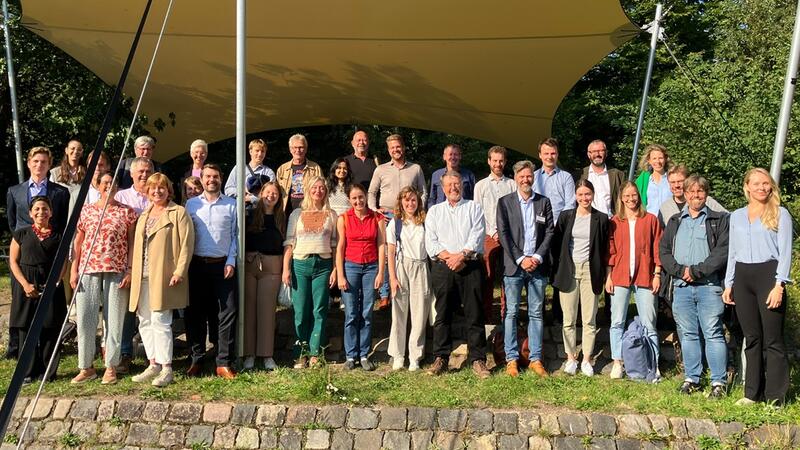Workshop focuses on Environmental Impact and Mitigation for Energy Transmission Grids in the Wadden Sea

As part of Europe's green energy transition, the development of offshore wind farms in the North Sea is set to play a critical role, with significant implications for the Wadden Sea region. The Wadden Sea World Heritage Site and its coastline serve as key locations where energy transmission cables from offshore installations will make landfall, raising concerns about environmental impacts. To address these challenges, a workshop was held on 18 September 2024, in Hamburg. The event brought together some 35 representatives from Denmark, Germany, and the Netherlands, including planning and environmental authorities, government agencies, NGOs, researchers, and private sector experts.
“In order to protect our Wadden Sea, we need to further refine and implement methods and approaches that allow for energy cabling while safeguarding the Wadden Sea from potential negative impact during both construction and operation”, stated Sascha Klöpper, Executive Secretary of the Common Wadden Sea Secretariat. The workshop aimed to provide a unique collaborative platform for participants to gain insights and share the latest research and practical approaches to reducing environmental impacts. Additionally, it facilitated interdisciplinary discussions and cross-border knowledge exchange to enhance the planning and implementation of projects connecting offshore energy infrastructure to the mainland.
Key outcomes of the event included contributions to developing a joint strategic and systematic approach to minimise negative impacts on the natural values of the Wadden Sea World Heritage Site. The workshop built on discussions from the Wadden Sea Day 2024, held in August, which explored the broader effects of the North Sea energy transition on the region. The event, part of the implementation strategy for the site’s integrated management plan, was co-organised by a trilateral consortium of external experts, led by the Dutch consultancy Witteveen+Bos, and included DHI (DK and DE), Intertek (UK), NIRAS (DK) and Deltares (NL).
The workshop is part of the EU-funded project “North Sea wide acceleration of LANding offshore energy while mitigating Impact on the Coastal Environment (LANICE)”. LANICE supports the EU renewable energy targets and climate change mitigation objectives, while ensuring the protection of the Wadden Sea World Heritage Site. Its primary objective is to develop mitigation schemes to effectively reduce environmental impacts by investigating environmental conflicts and acceleration potentials for transmission grid projects for an environmentally sound energy transition.
